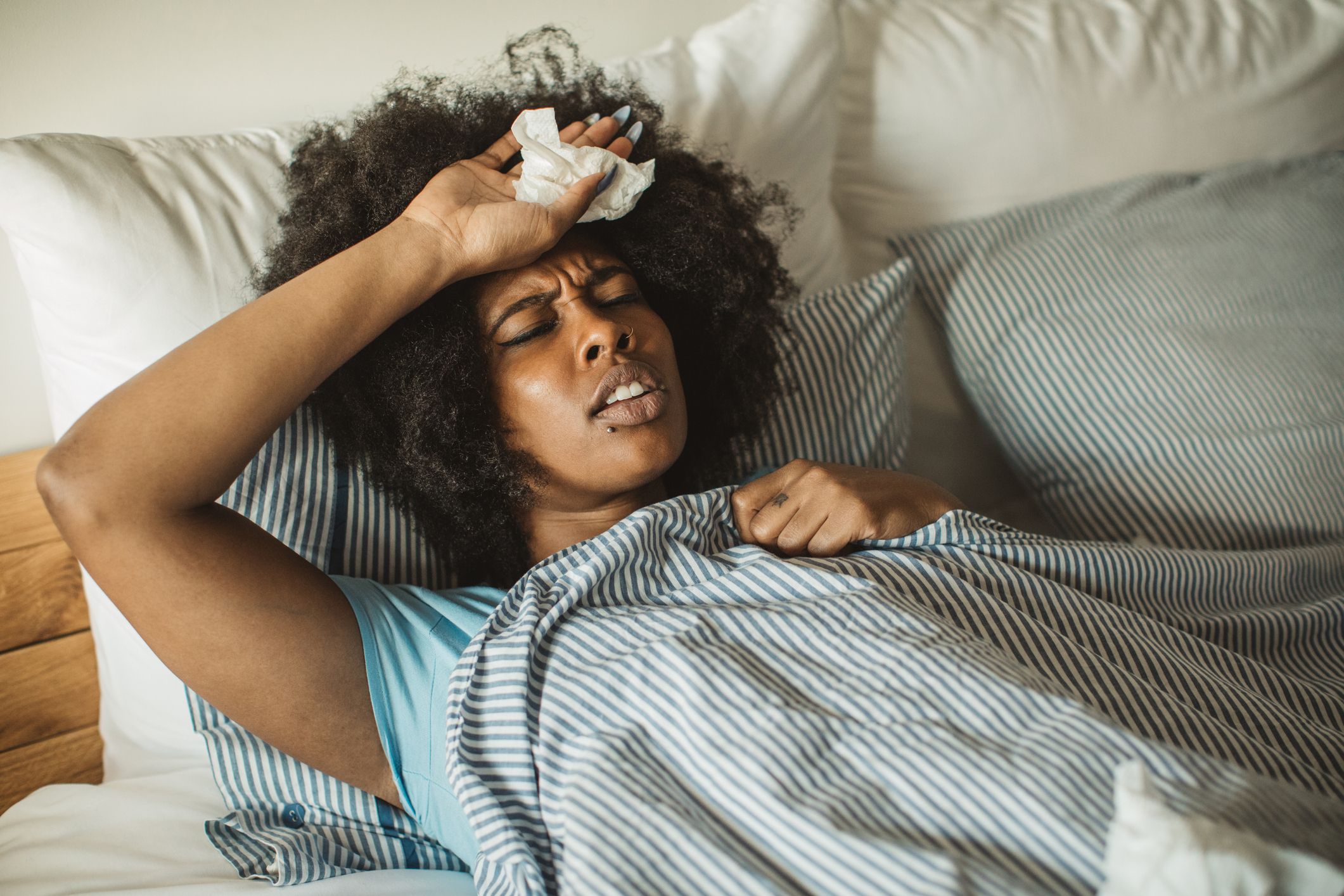Have you ever felt feverish during your period and wondered why? This isn’t just in your head. It’s likely due to the complex interaction between your hormones and immune system. Fevers are usually a sign of your body fighting off infections, triggered by your immune system’s production of antibodies and molecules against pathogens. One of these molecules, prostaglandin, is also crucial in your menstrual cycle.
Interesting, right? Let’s find out more about this lesser-known connection between your menstrual cycle and body temperature.

Can Periods Cause Fever?
Yes, periods can sometimes cause a mild increase in body temperature or even a slight fever. This phenomenon is primarily due to the hormonal changes that occur during the menstrual cycle, particularly the release of prostaglandins. These chemicals help the uterus contract to shed its lining, but they can also influence other body systems, including your body’s temperature regulation.
While a true fever (temperature above 100.4°F or 38°C) is uncommon, many women experience a slight elevation in temperature during their period. If the fever is significant or accompanied by other symptoms like severe pain, it might be a good idea to consult a healthcare provider to rule out other conditions such as infections or inflammatory disorders.
Contents
How Normal Is It To Have Fever During Period?
A true fever (usually above 100.4°F or 38°C) isn’t considered normal during your period. While hormonal fluctuations can cause a slight rise in body temperature, it shouldn’t be a full-blown fever. Here’s a breakdown:

-
Mild rise vs. fever: A slight increase in basal body temperature during menstruation is normal. This temporary rise is due to hormones and shouldn’t be mistaken for a fever.
-
When to be concerned: If your temperature goes above 100.4°F (38°C) and stays elevated for more than a few days, it could indicate an underlying infection. See a doctor to get checked out.
Some women experience a “period flu” with symptoms like fatigue, aches, and feeling generally unwell. This can be accompanied by a low-grade fever, but it shouldn’t be a high fever.
What Are the Symptoms of Period Flu?
The term “period flu” refers to a set of symptoms that some women experience around the time of their menstruation, which resemble those of the flu. These symptoms are believed to be triggered by hormonal changes, particularly fluctuations in estrogen and progesterone. Common symptoms of period flu include:

- Fatigue: Feeling unusually tired and drained, which can be debilitating.
- Headaches: Mild to severe headaches, often similar to migraines.
- Body Aches: General muscle pain and joint aches, similar to those experienced during the flu.
- Feverish Feelings: A slight increase in body temperature or a feeling of being feverish, although a high fever is rare.
- Nausea: Some women may experience stomach upset or nausea.
- Chills: Feeling cold and shivery, despite not having an actual fever.
- Diarrhea or Constipation: Digestive issues that coincide with the menstrual cycle.
- Dizziness: Episodes of lightheadedness or vertigo.
These symptoms typically begin just before the onset of menstruation and can last for a few days into the period.
Tips To Prevent Fever Symptoms During Periods
To help prevent or alleviate fever symptoms and general discomfort during your period, consider these practical tips:
-
Stay Hydrated: Drinking plenty of water helps regulate your body temperature and can alleviate symptoms like headaches and fatigue.
-
Use Over-the-Counter Pain Relief: Nonsteroidal anti-inflammatory drugs (NSAIDs) such as ibuprofen or naproxen can reduce the production of prostaglandins, which not only helps with cramps but can also lower feverish symptoms.
-
Maintain a Healthy Diet: Eating well-balanced meals that include fruits, vegetables, whole grains, and lean proteins can support overall health and help stabilize your body’s responses.
-
Get Plenty of Rest: Ensuring adequate sleep helps your body to recover and can lessen the severity of symptoms like fatigue and a low-grade fever.
-
Apply Heat: Using a heating pad on your lower abdomen can relieve cramps and discomfort, which might indirectly help manage any feverish feelings.
-
Stay Cool: If you feel overheated, dress in light, breathable clothing, and use a fan or air conditioning to help keep your body temperature in check.
-
Manage Stress: Stress can exacerbate menstrual symptoms, including temperature fluctuations. Techniques such as meditation, yoga, or other relaxation practices can be beneficial.
-
Regular Exercise: Light to moderate exercise, such as walking or yoga, can improve circulation and overall health, potentially reducing symptoms associated with your period.
Frequently Asked Questions
What is Period Flu?
Period Flu is a syndrome wherein menstruating individuals experience symptoms similar to those of flu including nausea, muscle aches, joint pain, and fever. The condition results from hormonal fluctuations, immune responses, and prostaglandin during the menstrual cycle.
How do hormones affect body temperature during periods?
During menstruation, basal core body temperature tends to rise due to hormonal fluctuations. These hormonal changes may result in low-grade fever, making it normal to have a slight increase in body temperature during periods.
Does menstruation weaken the immune system?
Yes, during menstruation, the body’s inflammatory responses are heightened, and the function of immune cells may be reduced. This weakened immune function means you may struggle to fight off bacteria, increasing the risk of falling ill.
Is 99.4 a fever when menstruating?
A body temperature of 99.4 during menstruation can be considered normal due to hormonal fluctuations. A fever is generally deemed to have set in when the body temperature reaches 100–100.4 degrees in adults.
Why do I feel unwell during my period?
Hormonal fluctuations during the menstrual cycle can impact how you feel, both physically and emotionally. It’s normal to feel blues or feel sick before and during a period.
What causes flu-like symptoms during menstruation?
Flu-like symptoms during menstruation are caused by low estrogen levels. These trigger a response in the brain that releases the neurotransmitter, norepinephrine, leading to a decrease in essential brain chemicals like dopamine and acetylcholine, thus inducing symptoms such as insomnia and fatigue.
I am a medical student with experience and interest in Women’s health and well-being.